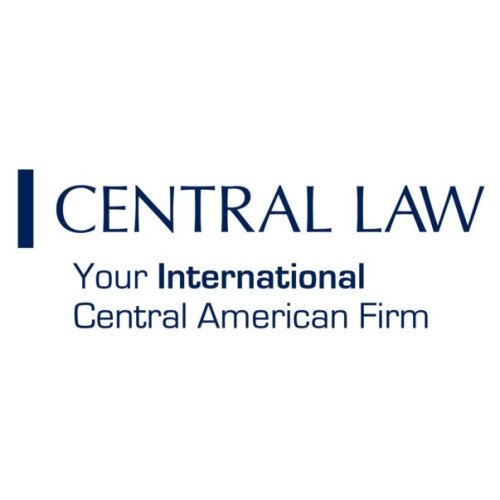Best Reinsurance Lawyers in Honduras
Share your needs with us, get contacted by law firms.
Free. Takes 2 min.
Or refine your search by selecting a city:
List of the best lawyers in Honduras
About Reinsurance Law in Honduras
Reinsurance refers to the practice where an insurance company transfers a portion of its risks to another insurance company. In Honduras, reinsurance is governed by laws and regulations that ensure the stability and reliability of the insurance market. The role of reinsurance is crucial in managing risks and providing financial security to insurance firms. The regulatory framework in Honduras aims to maintain transparency, accountability, and financial integrity within the insurance industry.
Why You May Need a Lawyer
There are several situations where seeking legal advice regarding reinsurance may be necessary:
- Drafting and negotiating reinsurance contracts to ensure favorable terms.
- Resolving disputes between primary insurers and reinsurers over claims payments.
- Navigating the legal requirements for establishing a reinsurance company in Honduras.
- Understanding compliance with local reinsurance regulations and standards.
- Dealing with cross-border reinsurance arrangements and ensuring they meet international regulatory standards.
Local Laws Overview
Honduras has specific regulations pertaining to reinsurance that are part of its broader insurance regulatory framework. Key aspects of local laws include:
- The requirement for reinsurance companies to be duly registered and licensed to operate in Honduras.
- Regulations on the types of risks that can be transferred to reinsurers and the coverage limits allowed.
- Obligations for maintaining financial solvency and reporting standards as outlined by the Comisión Nacional de Bancos y Seguros (CNBS).
- The need for compliance with international treaties and agreements affecting reinsurance operations.
Frequently Asked Questions
What is reinsurance?
Reinsurance is the practice of an insurance company transferring parts of its risk portfolios to other insurers to reduce the likelihood of paying a large obligation resulting from an insurance claim.
Why is reinsurance important?
Reinsurance provides insurance companies with a way to manage risk, stabilize their finances, and protect themselves from significant losses, allowing them to offer more insurance coverage to policyholders.
Is reinsurance mandatory in Honduras?
While not mandatory for all insurance operations, certain types of large or high-risk insurance contracts may require reinsurance to fulfill regulatory obligations or financial prudence.
How is reinsurance regulated in Honduras?
Reinsurance in Honduras is regulated by the Comisión Nacional de Bancos y Seguros (CNBS), which sets standards for licensing, reporting, and solvency to ensure market stability and consumer protection.
Can foreign reinsurance companies operate in Honduras?
Yes, foreign reinsurance companies can operate in Honduras if they comply with local licensing requirements and adhere to the regulatory standards set by the CNBS.
What should I consider when choosing a reinsurer?
Consider the reinsurer’s financial strength, regulatory compliance, reputation, and experience in handling similar types of coverage or risks.
What are common challenges in reinsurance agreements?
Challenges can include disagreements on claim payments, differing interpretations of contract terms, and cross-border regulatory compliance issues.
How do disputes in reinsurance contracts get resolved?
Disputes can be resolved through negotiation, mediation, arbitration, or, if necessary, litigation in the appropriate legal venues in Honduras or as specified in the contract.
What is a retrocession in reinsurance?
Retrocession is the practice where a reinsurer transfers a portion of its reinsurance to another reinsurer, effectively acting as a ceding company itself.
How can I ensure compliance with reinsurance laws in Honduras?
Regularly consult with legal experts or advisors for up-to-date guidance on regulatory changes and to ensure contractual and operational compliance in reinsurance transactions.
Additional Resources
For those seeking additional information or help, consider these resources:
- Comisión Nacional de Bancos y Seguros (CNBS): The main governmental body overseeing the insurance and reinsurance market.
- Legal and Financial Consulting Firms: Many firms in Honduras offer specialized reinsurance legal advice and consultancy services.
- Insurance and Reinsurance Associations: Industry groups often provide resources, publications, and events focused on reinsurance topics.
Next Steps
If you need legal assistance in reinsurance, consider the following steps:
- Identify your specific legal needs, whether it’s contract review, dispute resolution, or compliance advice.
- Research and reach out to specialized legal professionals with experience in reinsurance law in Honduras.
- Prepare any relevant documents or information related to your reinsurance matters before consulting with a legal expert.
- Engage a lawyer to provide guidance, representation, or support as needed to ensure your reinsurance activities are secure and compliant.
Lawzana helps you find the best lawyers and law firms in Honduras through a curated and pre-screened list of qualified legal professionals. Our platform offers rankings and detailed profiles of attorneys and law firms, allowing you to compare based on practice areas, including Reinsurance, experience, and client feedback.
Each profile includes a description of the firm's areas of practice, client reviews, team members and partners, year of establishment, spoken languages, office locations, contact information, social media presence, and any published articles or resources. Most firms on our platform speak English and are experienced in both local and international legal matters.
Get a quote from top-rated law firms in Honduras — quickly, securely, and without unnecessary hassle.
Disclaimer:
The information provided on this page is for general informational purposes only and does not constitute legal advice. While we strive to ensure the accuracy and relevance of the content, legal information may change over time, and interpretations of the law can vary. You should always consult with a qualified legal professional for advice specific to your situation.
We disclaim all liability for actions taken or not taken based on the content of this page. If you believe any information is incorrect or outdated, please contact us, and we will review and update it where appropriate.
Browse reinsurance law firms by city in Honduras
Refine your search by selecting a city.








